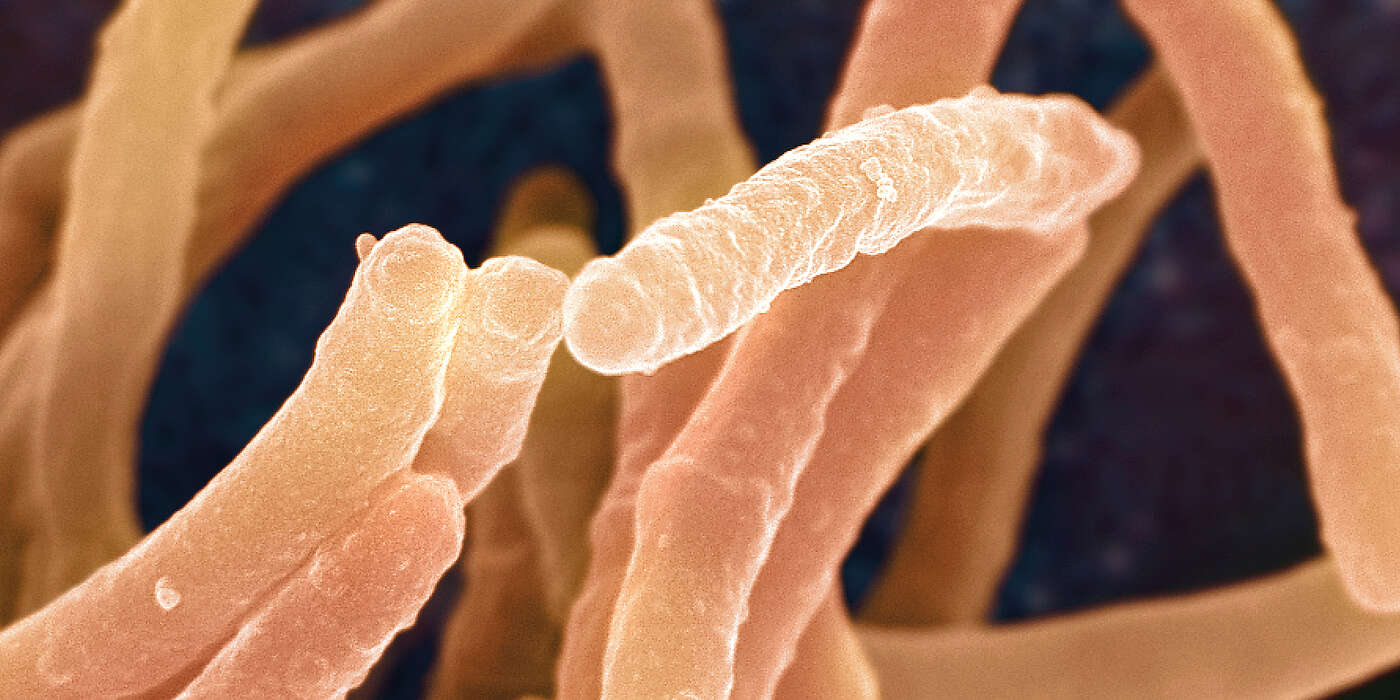A number of pathogens protect themselves with an outer membrane that makes it difficult to combat them with antibiotics. In addition, the widespread use of antibiotics promotes the development of resistant bacteria. In collaboration with scientists from the ETH Zurich, the University of Zurich and the Biozentrum, University of Basel, Polyphor has now discovered a new class of antibiotics, which works in a completely different way than the existing antibiotic drugs.
With this newly developed drug class, specifically infections by Gram-negative bacteria can be treated. This group of bacteria are a common cause of serious and often life-threatening infections, including pneumonia, urinary tract infections, sepsis as well as cholera or typhoid fever.
New antibiotic class targets bacterial membrane components
This new class of antibiotics known as OMPTA (Outer Membrane Protein Targeting Antibiotics) targets two important components in the outer membrane of Gram-negative bacteria: specific membrane proteins, in particular BamA, and lipopolysaccharides. This disturbs the integrity of the outer membrane and thus vital processes such as the transport of substances or signal transmission.
Towards unraveling the mode of action of the new antibiotic compound, the group of Prof. Sebastian Hiller at the Biozentrum, University of Basel, has contributed a key piece of information. “Using high-resolution NMR spectroscopy, we could localize the binding site of the OMPTA compound on the outer membrane protein BamA,” says Hiller “We have also been able to demonstrate that binding of the compound shifts the protein BamA into its closed, inactive state.” The interaction can thus block the integration of newly produced membrane proteins into the outer bacterial cell envelope.
Fighting difficult-to-treat infections
Antibiotics of this new class have the potential to successfully fight difficult-to-treat infections, even if the pathogens are already resistant or multi-resistant to conventional antibiotics. This discovery potentially constitutes a major breakthrough in the fight against antibiotic-resistance, which is a global threat for society and healthcare systems
First drug candidate in preclinical trial
Polyphor further announced that a first lead molecule of this new OMPTA class is currently in preclinical development. Polyphor is an Allschwil-based biopharmaceutical company focused on the discovery and development of immuno-oncology compounds and a new class of antibiotics.
National Research Programme "Antimicrobial Resistance" (NRP 72)
This study now published in "Nature" also falls within the framework of the National Research Programme "Antimicrobial Resistance" (NRP 72). It is part of the project "The molecular mechanism of outer membrane protein insertion by BamA and its role as a target for new antibiotics" headed by Prof. Sebastian Hiller from the Biozentrum of the University of Basel. Besides Polyphor and the Universities of Zurich and Basel, the ETH Zurich is also part of the research consortium. More information: www.nrp72.ch
Original paper:
Anatol Luther, Matthias Urfer, Michael Zahn, Maik Müller, Shuang-Yan Wang, Milon Mondal, Alessandra Vitale, Jean-Baptiste Hartmann, Timothy Sharpe, Fabio Lo Monte, Harsha Kocherla, Elizabeth Cline, Gabriella Pessi, Parthasarathi Rath, Seyed Majed Modaresi, Petra Chiquet, Sarah Stiegeler, Carolin Verbree, Tobias Remus, Michel Schmitt, Caroline Kolopp, Marie-Anne Westwood, Nicolas Desjonquères, Emile Brabet, Sophie Hell, Karen LePoupon, Annie Vermeulen, Régis Jaisson, Virginie Rithié, Grégory Upert, Alexander Lederer, Peter Zbinden, Achim Wach, Kerstin Moehle, Katja Zerbe, Hans H. Locher, Francesca Bernardini, Glenn E. Dale, Leo Eberl, Bernd Wollscheid, Sebastian Hiller, John A. Robinson and Daniel Obrecht. Chimeric peptidomimetic antibiotics against Gram-negative bacteria. Nature; published online 23 October 2019



